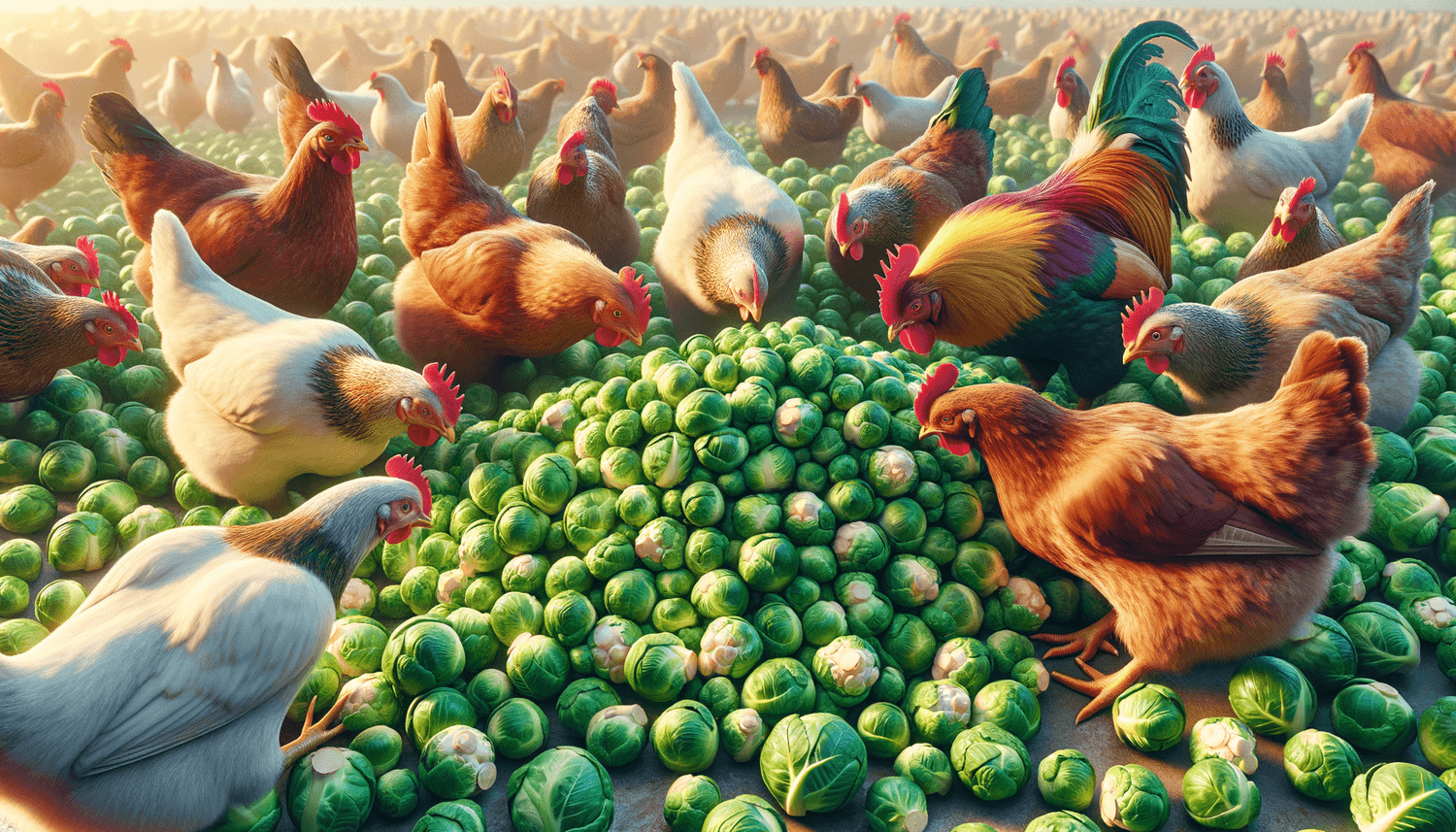Yes, chickens can eat Brussel sprout leaves. These leaves are safe for chickens to consume and can serve as a source of vitamins and minerals. However, they should be fed in moderation alongside a balanced diet to ensure the chickens get all the nutrients they need without the risk of overconsumption of any particular type of food.
Quick Summary
- Chickens can eat Brussel sprout leaves.
- Brussel sprout leaves are a healthy snack packed with essential nutrients.
- Key benefits include vitamins A, C, and K, while risks are minimal if fed in moderation.
- Recommended as a part of a varied diet; ensure leaves are clean and chopped for easier consumption.
Overview of Brussel Sprout Leaves
Brussel sprout leaves are the outer layers of the brussel sprout plant, usually discarded when preparing the sprouts for consumption. They are rich in vitamins A, C, and K, as well as dietary fiber and antioxidants. Brussel sprout leaves have a similar nutritional profile to the sprouts themselves but are often less dense in flavor.
Benefits and Risks of Brussel Sprout Leaves for Chickens
Eating Brussel sprout leaves can provide chickens with a boost of essential nutrients, aiding in their overall health and egg production. The fiber can support digestive health. However, like all treats, these leaves should only make up a small portion of the chickens’ diet to prevent nutrient imbalances and potential toxic effects from excessive consumption of any single food item.
Feeding Guidelines
When feeding Brussel sprout leaves to chickens, ensure they are fresh, free from pesticides, and washed to remove any dirt or debris. It is best to chop them into smaller pieces to make them easier for the chickens to eat. Brussel sprout leaves should only be a supplement to a balanced diet, not exceeding 10% of the chickens’ total food intake.
Alternatives
If Brussel sprout leaves are unavailable, other green leafy vegetables like kale, spinach, or swiss chard can offer similar nutritional benefits and are also safe for chickens to eat in moderation.
Expert Opinions
Poultry nutritionists and veterinarians generally agree that a varied diet including vegetables, leaves, and appropriate kitchen scraps alongside commercial chicken feed can contribute to the health and well-being of backyard chickens. Reference to scientific studies or reviews may provide additional insights on optimal dietary recommendations for poultry.
Frequently Asked Questions
After learning that chickens can eat Brussel sprout leaves, you may still have some questions. Let’s address some common concerns.
How often can chickens eat Brussel sprout leaves?
Brussel sprout leaves can be fed to chickens in small amounts a couple of times a week as part of a varied diet. It is important not to overfeed these leaves to avoid nutritional imbalances.
Do Brussel sprout leaves need to be cooked before feeding to chickens?
No, Brussel sprout leaves can be fed raw to chickens. Ensure they are clean and chopped into manageable pieces for the chickens to eat easily.
Can Brussel sprout leaves replace commercial chicken feed?
No, Brussel sprout leaves should not replace commercial chicken feed. They are a supplemental treat and should only make up a small percentage of your chickens’ overall diet, which needs to be nutritionally complete.

















